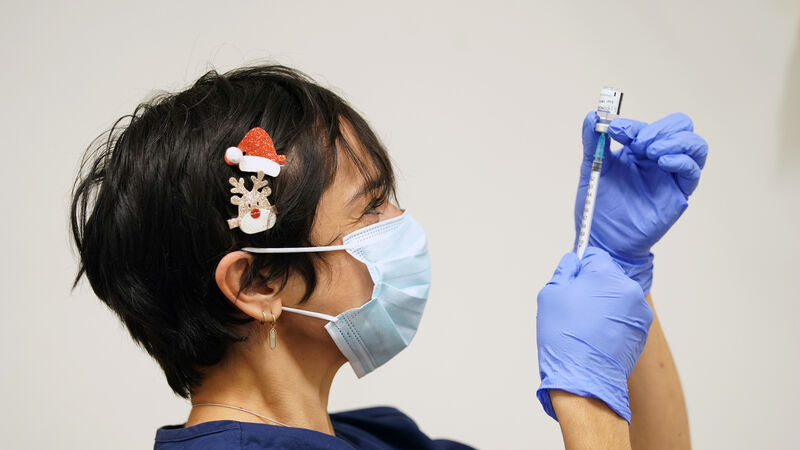Pregnant women's access to boosters is a postcode lottery, say advocates

This week also sees the start of first vaccinations for children aged five to 12. Picture: PA
Pregnant women are now being offered boosters, but advocates would like easier access to information and vaccines.
Boosters for this group are available through pharmacies, mass vaccination centres, and some GP practices also. However, access to boosters and reliable information can still depend on where you live, according to AIMS Ireland chairperson Krysia Lynch.










